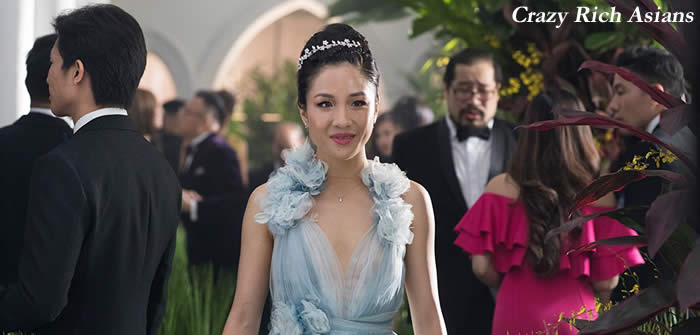Unless you’ve been living under a rock for the past nine months, chances are you’re probably familiar with the films Black Panther and Crazy Rich Asians. It’s equally likely that you’ve read and heard all about how these two films are transforming Hollywood and the movie industry, breaking down racial boundaries for actors and actresses, combating the hateful tides of racism, and empowering minority youths all around the world.
That certainly sounds impressive, but the impact that these films have had is severely over hyped. Now don’t get me wrong: both movies were engaging and fun to watch, and they both have excellent entertainment value. But just having a predominantly minority cast is about as far as they go in terms of social progressiveness. And yes, I know that Black Panther alluded strongly to slavery and racism within the film itself, but that still doesn’t justify praising it as revolutionary, or as an absolute breakthrough.
The reason is simple: just having a minority cast is not enough. In fact, it has the opposite effect. After all, isn’t it ironic that we exalt these films as exemplars of diversity and inclusion when their cast composition is anything but? For movies—or any media, for that matter—to truly leave their mark, the content itself must be meaningful and thought provoking, leaving the audience with a lasting impression and an urge to further discuss the central issue long after the ending credits. Otherwise, any perceived impact is at best superficial and short-lived.
That’s where films like Black Panther and Crazy Rich Asians fall short. Rather than leaving an impression on the audience through its social commentary or writing, both films rely instead on a peripheral factor, that being the ethnicity of their actors. Not only does this mean that these films will have a transient effect, but it also reinforces the dangerous idea that the message of the film may not be as important as the actors playing in it, and that championing diversity is as simple as casting minority talents.
Going back to Black Panther: as I previously noted, Black Panther does focus a lot on slavery and oppression and the unfair treatment of African Americans in American society. It’s an important issue, and one we continue to grapple with. The message isn’t the problem; rather, it’s the context in which it was delivered. From the outset, a superhero movie is not the best platform from which to preach about social integration and racial equality, as the inherent element of fantasy dilutes the gravity of the topic at hand (Marvel’s super-science is basically another word for magic). Furthermore, despite Killmonger’s radical stance on the racial power dynamic and his aim on global domination, it might not have been the best idea to villainize someone who is fervently anti-slavery and anti-oppression (as evidenced by his ending—and rather explicit—monologue), though I am in no way advocating for radicalism.
There are, however, films that do it right when it comes to social commentary, and an excellent example would be Spike Lee’s BlacKkKlansman. Though on the surface it may feel like nothing more than a buddy cop comedy, it’s really a brilliant and scathing denunciation of racist and hateful white supremacist organizations such as the Neo Nazis and the Ku Klux Klan. And, might I add, it features winning performances from both black and white actors.
Admittedly, BlacKkKlansman was a bit preachy and over-the-top at times, but its success comes from the fact that the film invested in its screenplay and its content more than anything else, creating an engaging narrative that was moored in reality, set in Colorado Springs in the early 1970s (I won’t spoil anything here). With a solid historical foundation, the film lost none of its shock value, steering away from fantastical scenarios while delivering its blunt message full-force.
Therein lies the difference: none of these films are perfect, but I guarantee you that BlacKkKlansman left a deeper impression on audiences than Black Panther or Crazy Rich Asians, prompting viewers to think more critically about race relations and racial inequality. And given the current state of our politics and society, these are the films we need more of.
Once again, I’m not saying that Black Panther or Crazy Rich Asians are bad movies. They’re all good films, and if you haven’t seen them, then you should. Rather, what I’m arguing is that we should give credit where credit is due and leave the social commentary to the movies that are designed accordingly. In the end, when it comes to social reform through cinema, there’s a right and a wrong way to go about it.

